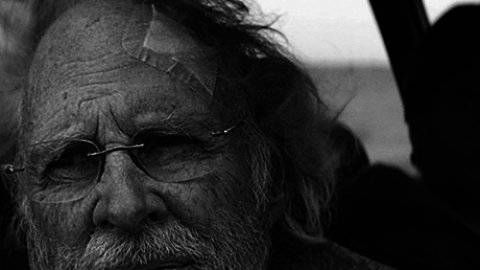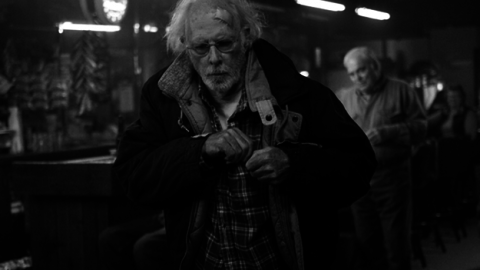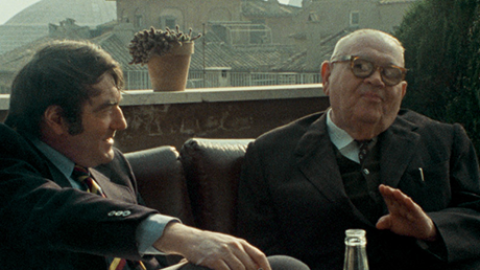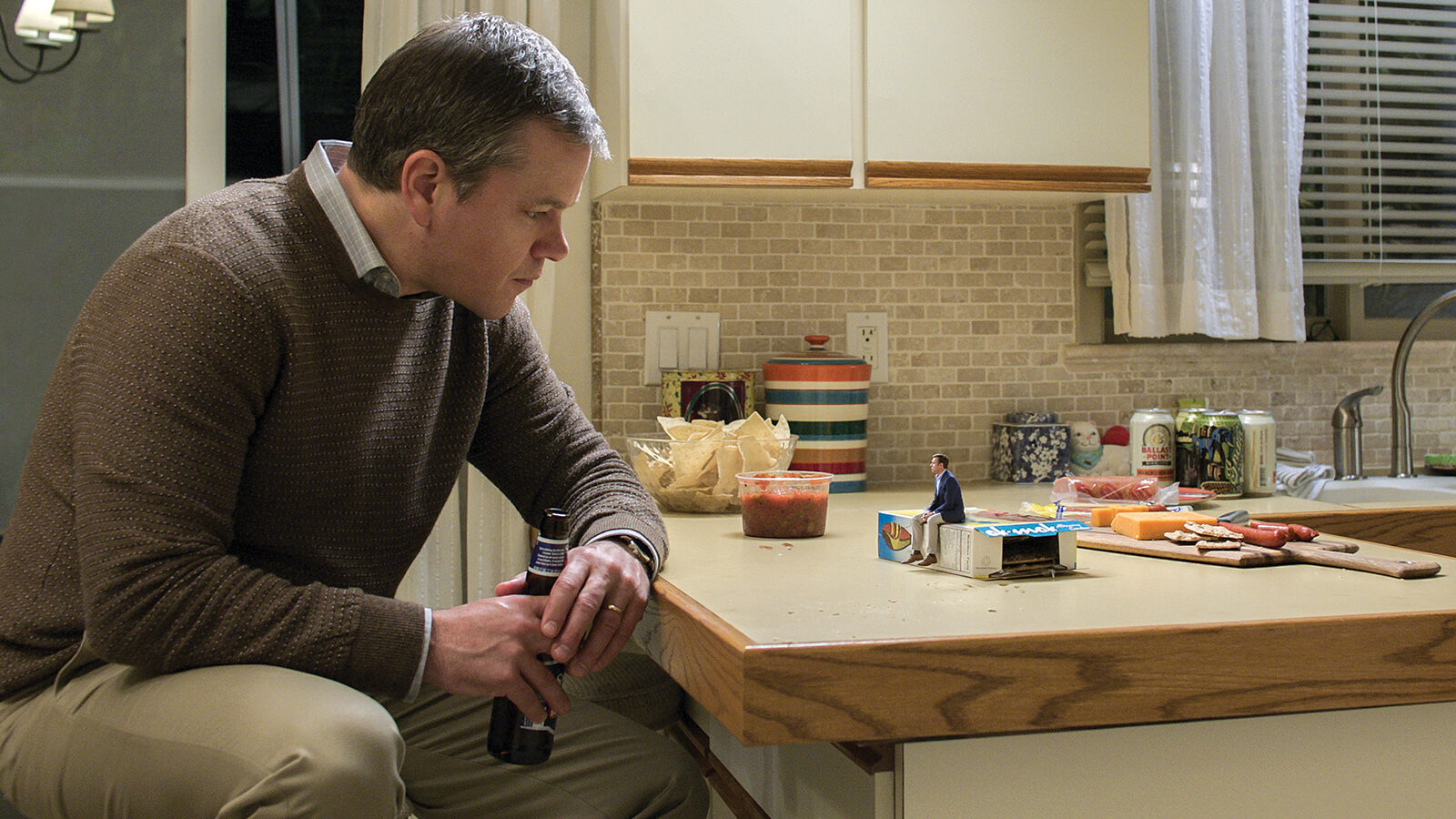
Review: Downsizing
Life in the United States seems to be increasingly driven by a particular kind of cruel irony: while the homeless can still freeze to death outdoors, for example, the wealthy can pay to be immersed in a freezing vat to help promote weight loss. It’s this maddening, absurd inequality that Alexander Payne goes after in his whimsical, sci-fi-inflected Downsizing, a not-quite comedy that dares to debunk Jesus complexes and make a disabled refugee with a thick accent and spotty command of English its true heroine. Accent discrimination is one of the few acceptable prejudices left, and carries some of the most pernicious assumptions about who a person is—namely, that they are less intelligent than those who can speak more fluently. (Just think why The Room has become a more popular cult classic than any other “bad” movie—is it because Tommy’s character talks “funny”?)
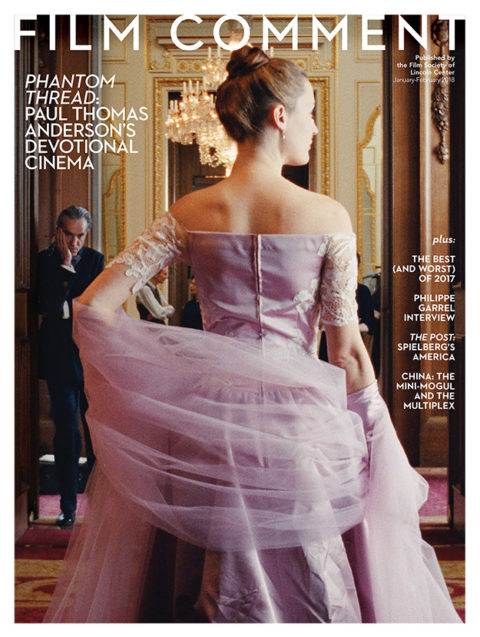
Among certain sectors of the commentariat, any mention of “working-class Americans” is code for a specific group of non-urban racists addled by eight years of Obama—even though black, Asian, and Latinx people also work and have been systematically screwed by trickle-down economics, neoliberal policies, and the financial crisis. Paul Safranek (Matt Damon) is exactly one of those “working-class Americans,” but he’s not nearly as malicious as you’ve been led to believe—he’s an occupational therapist in Omaha struggling to find a bigger house and true happiness with his wife, Audrey (Kristen Wiig). After seeing friends live like millionaires following an environmentally conscious procedure known as “downsizing”—in which humans are shrunk to a tiny fraction of their regular height and therefore use less resources—Paul and Audrey plan to move to “Leisure Land,” a micro-community in the desert. However, Audrey backs out at the last second, leaving Paul with significantly less economic resources and nobody to enjoy the good life with. (Their parting is as hilarious, heartbreaking, and blisteringly realistic as you’d expect from Payne.) Rather than being semi-retired in a suburban mansion, Paul is forced to live in an apartment beneath Eurotrash playboy Dusan (Christoph Waltz, in a bit of casting that embraces his annoying continental vibes) and work in call center support for Land’s End. In short, he fails at the American dream and the mulligan.
After partaking in one of Dusan’s bacchanalias, Paul meets Ngoc Lan Tran (Hong Chau, who also appeared in Inherent Vice), a Vietnamese environmental and political activist who was shrunk against her will and lost her leg, and who now supports herself as a maid. Through Ngoc Lan, Paul comes to realize that the workers who manicure the lawns and clean the houses of the wealthy downsized are overwhelmingly Latinx and Asian immigrants struggling to get by. Ngoc Lan helps distribute uneaten food from the wealthy side of Leisure Land to her neighbors and takes care of the sick, a one-woman social services. Paul aids Ngoc Lan on her rounds, but eventually they are both pulled away for a special assignment with Dusan and his sea captain friend, Joris (Udo Kier, another bit of perfect casting), which involves the scientist who created downsizing. This journey takes the film into both literally and figuratively different territory, which might be disorienting for viewers already reeling from the story’s previous sharp turns.
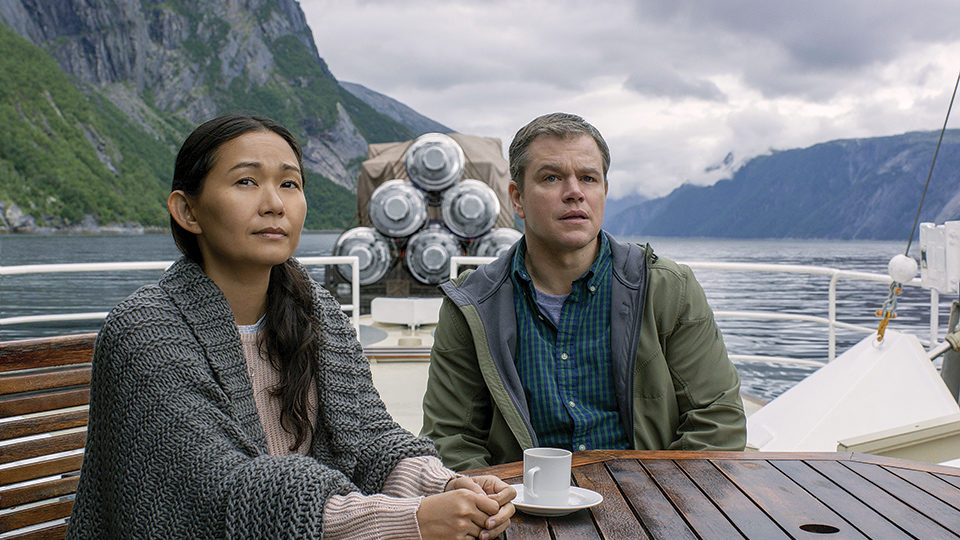
Although not everything about Downsizing is perfect, it proves Payne’s strengths as a visual storyteller and his commitment to social realities. There are plenty of intricate, hilarious visual jokes throughout, be it the spatulas that the regular-sized nurses use to lift the newly downsized into a mini-hospital, or character-building jibes, such as the giant photograph Dusan has of himself as a young man, prominently hung in his living room. Without ever descending into didacticism or deploying pinko terminology like “bourgeoisie,” Downsizing offers some pretty brave critiques of how and whom capitalism keeps failing, regardless of size.



